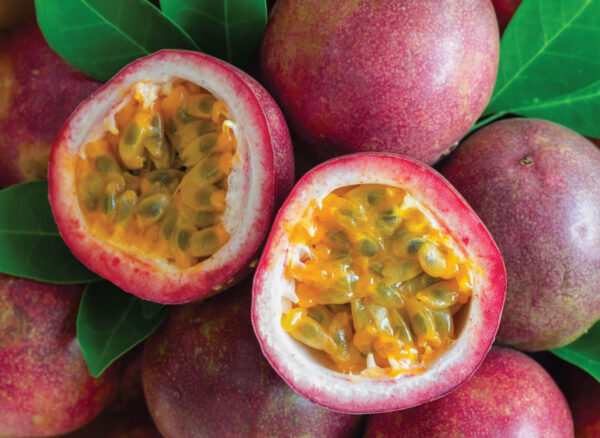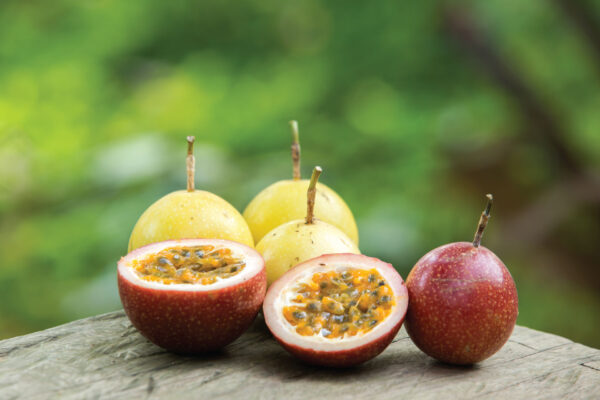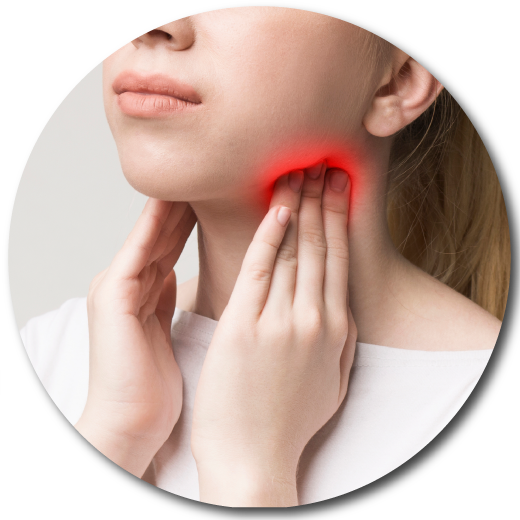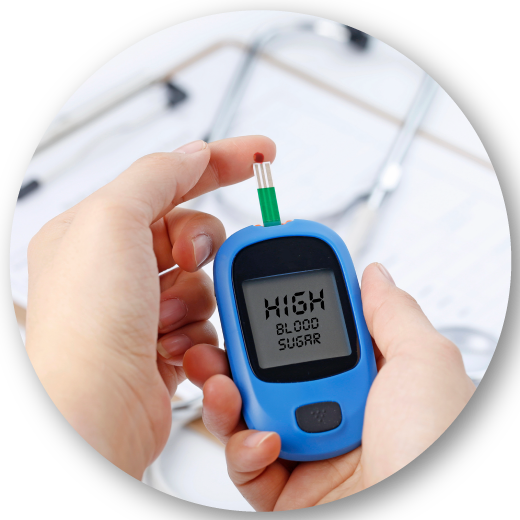Passion Fruit Extract
Passion fruit (Passiflora edulis f. flavicarpa O. Deg. (yellow variety) or Passiflora edulis Sims (purple variation) belongs to the Passifloraceae family. The tropics of South America’s highlands are home to this species. It is mostly farmed in the northern and eastern areas of Thailand, namely in Chiang Mai, Mae Hong Son, Phetchabun, and Chonburi, beginning with various agricultural stations such as the Royal Agricultural Station Pangda, Inthanon, Huai Luek, and Mae La Noi. Helps to decrease blood lipids, regulate blood pressure, and drain. The root of the passion fruit is used to treat fever. As an anthelmintic, passion fruit relieves itching. It also contains carbohydrates, Protein, Fiber, Niacin, Pyridoxine, Riboflavin, and Folates.
Passion fruit’s chemical makeup
Alkaloids, Harman, Harmine, Harmalol, Harmine, Phenols, Glycosyl flavonoids, Glycosides, and Cyanogenic are the chemical elements of passion fruit. As a result, myristic acid, palmitic acid, dihydromethysticin, and rutin exhibit antioxidant characteristics. Anti-oxidant and anti-inflammatory (Anti-inflammatory) properties aid to alleviate anxiety. Anti-anxiety medications lower blood pressure. Blood sugar levels are reduced with antihypertensive medication. Diabetes and cholesterol levels in the blood are reduced. Increase the quantity of good cholesterol (HDL) while decreasing the amount of bad cholesterol (LDL) (LDL). It has antibacterial properties. In addition to antimicrobial effects against germs and fungus, vitamin C in passion fruit improves iron absorption. Increases haemoglobin levels in the blood.


The Uses of Passion Fruit Extract in the Cosmetic Industry
Antioxidant properties of passion fruit extract Anti-oxidation has an anti-inflammatory impact since it contains more antioxidants than mango, pineapple, banana, and lychee. Through the decrease mechanism, it is anti-inflammatory. Pro-inflammatory drugs like IL-1 and TNF-, as well as inhibitors of leukocytes generated by Bradykinin and Histamin, are active against bacteria including E. coli, Salmonella enteritidis, Staphylococcus aureus, Pseudomonas aeruginosa, and Bacillus cereus, Saccharomyces cerevisiae, and Candida parapsilosis.
The Use of Passion Fruit Extract in the Supplement Industry
Polyphenols and anthocyanins found in passion fruit extract aid to reduce blood pressure. Anti-hypertensive action is achieved by lowering the quantity of Nitric oxide in the bloodstream, which aids in the prevention of hyperlipidemia. Hyperlipidemia reduces blood sugar levels by slowing carbohydrate digestion and absorption. Aids in relaxing (sedative), resulting in longer sleep duration and nervous system relaxation. Furthermore, because passion fruit contains high levels of vitamin A and vitamin C, it has an antioxidant action, preventing necrosis (Anti-cancer activity). The fiber in passion fruit aids with defecation as well.

Properties of passion fruit extract

Immunity

Anti-inflammatory

Anti-anxiety

Anti-diabetes
Research on passion fruit extract should be expanded.
At the moment, the form of passion fruit extract and passion fruit products are being developed to increase the stability of the extract or the development of raw material sources extraction process and the process of developing stable products and increasing the efficiency of the active ingredients. In the development of research and natural extracts, TIBD now collaborates with major research institutes both locally and abroad, such as Japan and Brazil. However, if you are interested in co-investing in the form of research development, commercial patent development, or continuing to make product formulae under your brand, you may contact the firm through any method.
Reference
Patel, S. S. (2009). Morphology and pharmacology of Passiflora edulis: a review. Journal of Herbal medicine and Toxicology, 3(1), 1-6.
Phamiwon, Z. A. S., & John, S. (2015). Diabetes and medicinal benefits of Passiflora edulis. World Journal of Pharmaceutical Research, 5(3), 453-65.
López-Vargas, J. H., Fernández-López, J., Pérez-Álvarez, J. A., & Viuda-Martos, M. (2013). Chemical, physico-chemical, technological, antibacterial and antioxidant properties of dietary fiber powder obtained from yellow passion fruit (Passiflora edulis var. flavicarpa) co-products. Food Research International, 51(2), 756-763.
He, X., Luan, F., Yang, Y., Wang, Z., Zhao, Z., Fang, J., … & Li, Y. (2020). Passiflora edulis: an insight into current researches on phytochemistry and pharmacology. Frontiers in pharmacology, 11, 617.


